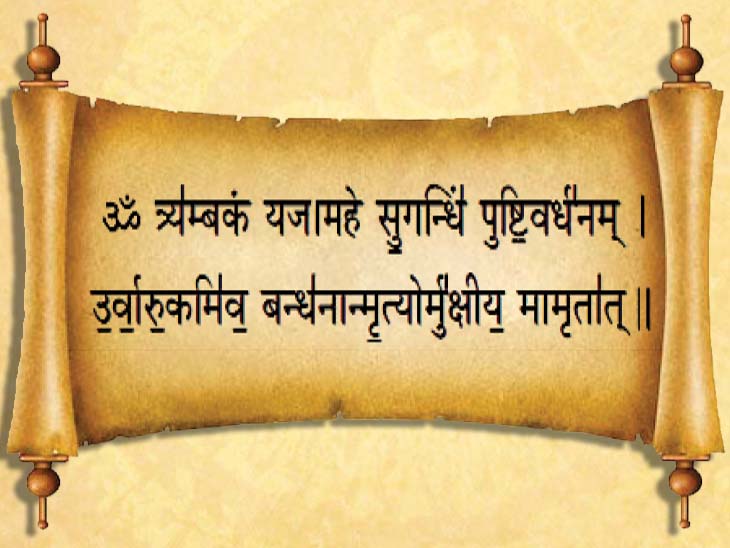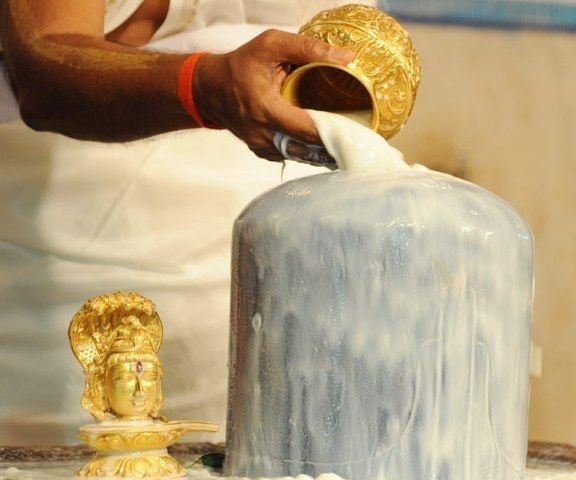
On the day of Mahashivratri, believers come together to honour Lord Shiva through Shiv Puja, a sacred act of worship. This ritual holds deep meaning, symbolising respect, purification, and blessings from the divine.
Here we well break down the steps to perform Shiv Puja on Mahashivratri, offering a pathway for seekers to connect with Lord Shiva and undergo spiritual growth.
Step 1: Preparation and Purification of Shiv Puja
Before starting Shiv Puja, it’s essential to prepare oneself both mentally and physically. Begin by taking a purifying bath or shower to cleanse the body and mind, symbolising the removal of impurities and distractions. Wear clean and modest attire as a mark of respect and humility towards the divine. Set up a sacred space for the puja, adorned with flowers, incense, and other offerings to create a serene ambiance conducive to worship.
Step 2: Setting Up the Mandir
Create a sacred altar or puja mandir dedicated to Lord Shiva, preferably facing the east or northeast direction as per Vastu Shastra. Place a Shiva lingam, a representation of Lord Shiva’s cosmic form, at the center of the altar. Surround the lingam with offerings such as flowers, fruits, bilva leaves, milk, honey, and water, symbolizing purity and devotion. Light a lamp or diya to illuminate the altar and invoke the divine presence of Lord Shiva.
Step 3: Invocation of Lord Shiva

Begin the puja by invoking the presence of Lord Shiva through prayers and mantras. Chant sacred hymns such as the Maha Mrityunjaya Mantra to invoke blessings for protection, healing, and spiritual upliftment. Offer sincere prayers from the depths of your heart, expressing gratitude and reverence towards Lord Shiva as the supreme source of existence and consciousness.
Step 4: Abhishekam (Sacred Bathing) of the Shiva Lingam

Perform Abhishekam, the sacred ritual of bathing the Shiva lingam with various offerings, symbolising purification and devotion. Use water, milk, yogurt, honey, ghee, holy plant leaves of Belva tree and other auspicious substances to bathe the lingam while chanting mantras and prayers. Each offering carries symbolic significance, invoking specific blessings and divine attributes of Lord Shiva. As you perform Abhishekam, visualize the divine energy permeating the lingam and filling your heart with divine grace.
Step 5: Offering Prayers and Bhajans
After completing Abhishekam, offer heartfelt prayers, and devotional songs (bhajans) to Lord Shiva, expressing love, devotion, and surrender. Recite sacred texts such as the Shiva Purana or the Shiv Chalisa, praising the glories and virtues of Lord Shiva. Sing bhajans that resonate with your soul, invoking the divine presence and fostering a deep sense of connection with the cosmic consciousness. Offer flowers, incense, and arati (light) to Lord Shiva as tokens of reverence and devotion.
Step 6: Meditation and Contemplation
End the Shiv Puja by engaging in meditation and contemplation, allowing the mind to merge with the divine presence of Lord Shiva. Sit in silence and stillness, focusing your awareness on the formless essence of consciousness within and without. Absorb yourself in the divine attributes of Lord Shiva, such as compassion, wisdom, and eternal bliss. Surrender all thoughts and desires at the feet of Lord Shiva, experiencing a state of profound peace and inner fulfilment.
Step 7: Prasad Distribution and Sharing
Share the blessings of Shiv Puja with family, friends, and loved ones by distributing prasad, blessed offerings from the puja. Offer fruits, sweets, and sacred water (Charanamrit) as prasad, symbolizing divine grace and blessings bestowed by Lord Shiva. Invite others to partake in the sacredness of Mahashivratri and join in the celebration of spiritual unity and divine love.
In conclusion, performing Shiv Puja on Mahashivratri is a sacred opportunity to deepen one’s connection with Lord Shiva and experience the transformative power of divine grace. By following these clear steps with sincerity and devotion, seekers can immerse themselves in the timeless tradition of worship and discover the eternal presence of Lord Shiva within their hearts and souls.
